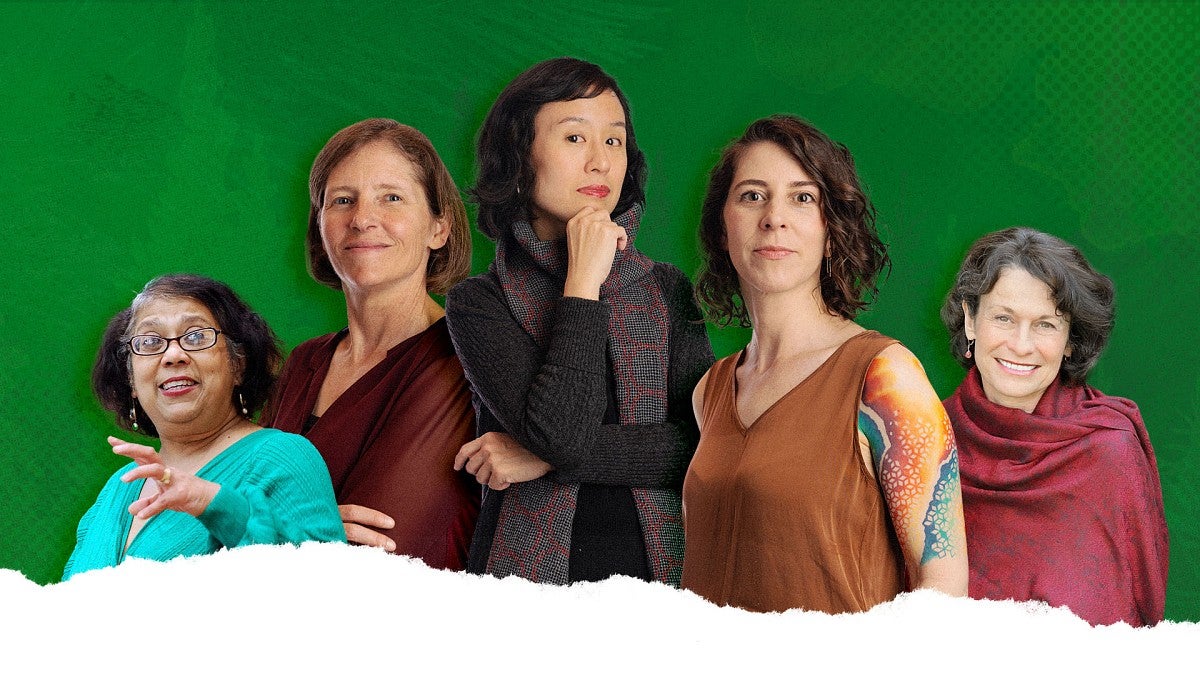They’ve overcome gender stereotypes, succeeded in fields traditionally dominated by men and paved roads of equity for others to travel.
They’re the Mighty Women of Mighty Oregon, and widely celebrated in the winter issue of Oregon Quarterly, available now.
The heart of the issue is the history of the Center for the Study of Women in Society, built on the tenacious work of faculty members who believed that the scholarly exploration of feminism could lead to groundbreaking research and societal change. Their determination was rewarded with fortuitous funding from an unexpected source: the estate of Jane Grant, a journalist and co-founder, with her first husband, Harold Ross, of The New Yorker magazine.
In conjunction with that feature, five recipients of research grants from the center offer their thoughts on the “mighty women” who inspired them.
The New Yorker connection comes full circle in a Q&A with Tina Brown, the magazine’s legendary editor in chief, once referred to as “Stalin in high heels,” who comes to Eugene for a panel discussion for the center’s 50th anniversary. Brown speaks plainly about the path to equality.
“You just have to win,” she says.
Also: Marie Equi, an alumna from the early 1900s, was a homesteader, frontier doctor, feminist and no-nonsense advocate for union workers and health care. She stood firm for her beliefs, no matter the cost. Her story is told in illustrated, graphic-novel style by another alumna, Audra McNamee, a graduate of the Clark Honors College and the math, computer science and comic studies programs in the College of Arts and Sciences.
A new Oregon Quarterly video profiles Nayantara Arora, the UO’s first Rhodes Scholar since 2007, who is studying global health and the relationship between the vascular system and Alzheimer’s disease. A first-generation Indian American, Arora is fluent in Hindi, Urdu, Punjabi and English; she also is learning Arabic, Hebrew and Spanish.
“With a family history of storytelling,” she says, “I am drawn towards empathy, open communication and reconciliation as powerful keys to solving the nuanced issues we face in communities today.”
Like Arora, Dante’ James is in the Clark Honors College, studying global health, and is a recipient of a prestigious Stamps Scholarship. Her experiences have taught her powerful lessons about growing up at intersections, as a scientist, woman and member of a minority population.
Architecture student Tayler Ervin, president of the Alpha Kappa Alpha Black sorority, considers the legacy of Nellie Franklin, the UO’s first Black woman graduate.
Masami Kawai is a filmmaker, storyteller and assistant professor of cinema studies at the UO. In her OQ profile, she offers lessons learned from her fellowship at the Sundance Screenwriters Lab.
The issue rises high on the sturdy shoulders of the UO acrobatics and tumbling team. Through the eyes of the coach and athletes, readers will learn the fine points of watching the sport and trace the phenomenal growth of the team and how it has been elevated by the philanthropy of the Women in Flight program.
Finally, Oregon Quarterly seeks short responses from readers on the topic, “Celebrate a Mighty Woman of Oregon." Teachers, mentors, friends, students or cultural icons, the magazine will compile the contributions and publish them for Women’s History Month in March.
—Top photo: (From left) Sangita Gopal, Dyana Mason, Joyce Cheng, Jo Weaver and Theresa May are featured in the winter 2024 Oregon Quarterly


